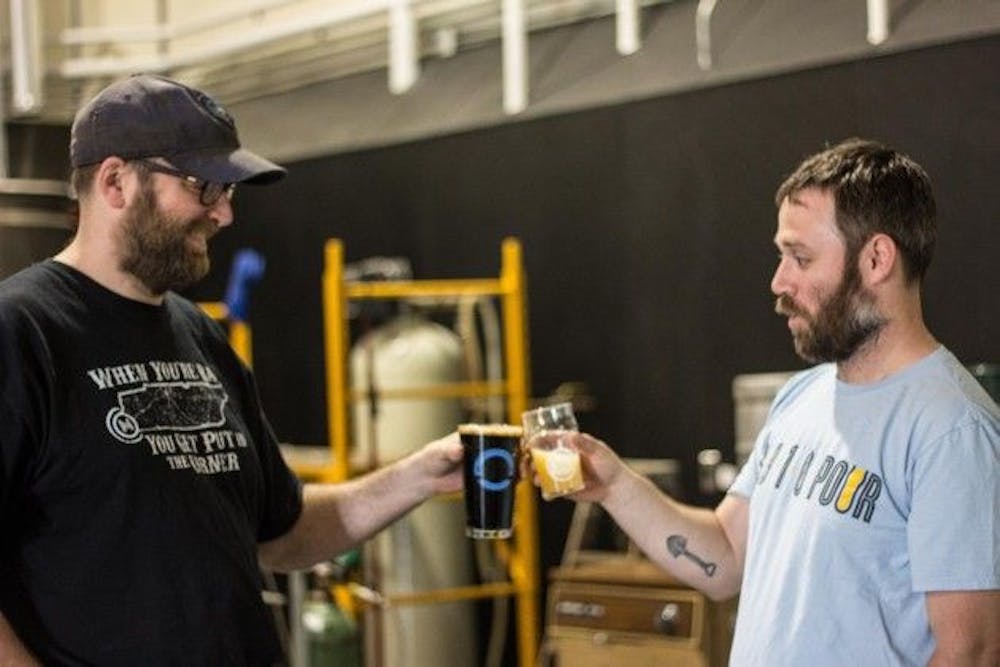In the early 20th century, Prohibition drove many large breweries into bankruptcy, convincing individuals to craft their own beers, albeit on a smaller scale. Andy Ashby and Drew Barton, co-owners of Memphis Made Brewery, still practice this art of "craft brewing" and hope to use it as a way to enrich the community and camaraderie of Memphis.
The history of "craft brewing", or microbrewing, on a larger, profitable scale began in the late 1970s in the United Kingdom. A large number of smaller breweries decided to begin producing a more traditional "cask ale," an unfiltered and unpasteurized brew that's fermented twice and served from a cask without the additional carbon dioxide.
Although the word "microbrewing" initially was used to describe the size of the breweries, it slowly turned into something expressing the freedom of experimentation and the brewing flexibility of the breweries. During the 1980s, the terminology made its way to the U.S., being used to describe any brewery producing fewer than 15,000 barrels of beer annually.
Ashby, 35, and Barton, 34, who both have backgrounds in beer knowledge and were bartenders for The Flying Saucer, decided to open a brewery after seven years of tossing around the idea. The duo learned the ins and outs of beer making in their own time, allowing them to wait on the right time to work through their plans.
The two reconnected after Barton moved away to Asheville, N.C., to work for the French Broad Brew Company as a distributor and Ashby finished his tenure as a journalist for the Memphis Business Journal. Around the same time, Wiseacre Brewery on Broad Avenue and High Cotton Brewery in Binghampton opened.
"I feel we came together at good time and really were some of the first, along with Wiseacre and High Cotton, to start a movement that could help our city," Ashby said.
The bare bones factory of Memphis Made located at the intersection of York Avenue and Cooper Street has only the necessary things.
"We were lucky to find this old Cooper-Young loading dock," Ashby said. "We left it as is for the most part, due to money and the fact that the hard concrete floors and high ceilings were perfect space to move in only what we needed."
The wide open spaces allow for shipping to be done easier, and cleaning is as simple as hot water.
As opposed to carrying a specific type of beer year round, Memphis Made carries a seasonal selection of beers based on whatever ingredients are readily available. As opposed to selling bottles or cans, a range of bars and restaurants in the Memphis area carry the brand to retain the sense of something only being for the citizens of the city, and as it stands, it's the only way to get their beer.
Choosing from local suppliers for every ingredient is one of the ways Ashby says that they are building up the community around them.
"Most people decide to go to the Internet for the simplest things that could be around the corner," Ashby said. "For everything, our signs, ingredients, T-shirts, machinery and whatever else you could imagine, we start at home."
It's the sense of freedom created from making something that's your own that Ashby loves the most.
"Every brewery overpasses Memphis," he said. "We can, and will, do this because our city grinds."




